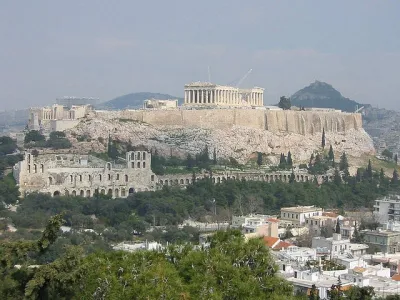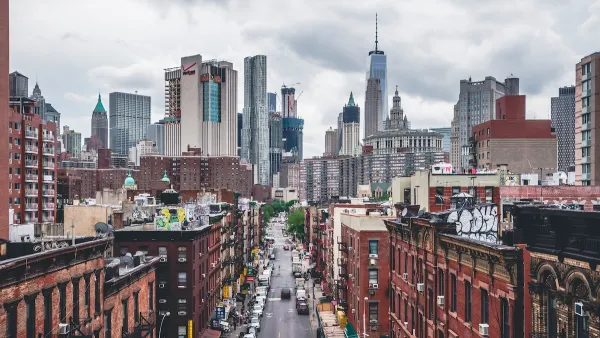As abstract as the study of philosophy may seem, it has to take place somewhere. Philosophy professor David Kishik posits that cities have influenced the development of philosophical ideas, from Socrates' Athens to William James' New York.

A great deal of philosophical thought, especially in moral philosophy, centers on the ways that people ought to relate to each other. It only stands to reason, then, that cities—the places where people come into contact with each other most intimately—have inspired some of the world's most important philosophers and philosophical ideas.
Writes David Kishik, "It might be enough to mention the critical importance of Athens to the birth of ancient philosophy with Socrates, Plato, and Aristotle; or the way that modern philosophy got its start in Bacon’s London, Descartes’s Paris and Spinoza’s Amsterdam; or the deep roots of American pragmatism in New York, where William James spent the first years of his life as a curious child, and John Dewey spent the last years of his life as a revered professor."
Kishik notes, though, that philosophy has not always embraced the city as such. He writes, "With (Jean-Jacques) Rousseau’s fame also came his deep aversion to the city: 'The manner of living in Paris amidst people of pretensions was so little to my liking. The cabals of men of letters, their little candor in their writings, and the air of importance they gave themselves in the world, were so odious to me. I found so little mildness, openness of heart, and frankness in the intercourse even of my friends. Disgusted with this life of tumult, I began ardently to wish to reside in the country.'" Philosophers have championed pastoralism and nationalism, in opposition to urbanism.
And yet, "the city tends to work as a zone that facilitates associations and interactions between many elements (ideas, commodities, skills, persons, interests, fortunes, desires, sensibilities, ideologies, stupidities). At least in theory, the city is not a container for lives but their meeting point, which is not to be confused with a melting pot. (A meeting point permits the differences of the parties involved. A melting pot turns them all into a single stew.)"
FULL STORY: Metrosophy: Philosophy and the City

Analysis: Cybertruck Fatality Rate Far Exceeds That of Ford Pinto
The Tesla Cybertruck was recalled seven times last year.

National Parks Layoffs Will Cause Communities to Lose Billions
Thousands of essential park workers were laid off this week, just before the busy spring break season.

Retro-silient?: America’s First “Eco-burb,” The Woodlands Turns 50
A master-planned community north of Houston offers lessons on green infrastructure and resilient design, but falls short of its founder’s lofty affordability and walkability goals.

Test News Post 1
This is a summary

Analysis: Cybertruck Fatality Rate Far Exceeds That of Ford Pinto
The Tesla Cybertruck was recalled seven times last year.

Test News Headline 46
Test for the image on the front page.
Urban Design for Planners 1: Software Tools
This six-course series explores essential urban design concepts using open source software and equips planners with the tools they need to participate fully in the urban design process.
Planning for Universal Design
Learn the tools for implementing Universal Design in planning regulations.
EMC Planning Group, Inc.
Planetizen
Planetizen
Mpact (formerly Rail~Volution)
Great Falls Development Authority, Inc.
HUDs Office of Policy Development and Research
NYU Wagner Graduate School of Public Service




























